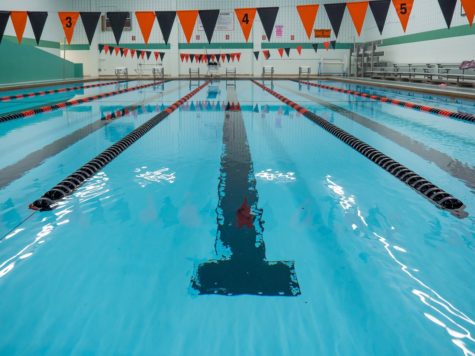More find college too expensive
March 4, 2015
Everything you’ve been told up to now is untrue. College educators have found that 57 percent of Americans say higher education in the U.S. fails to provide students with good value for the money they and their families spend.
Not only is the cost for college outrageous, but new concerns on how much and what schooling is actually necessary have come forth. Colleges track the job expectancy rates for their graduating students.
Out of the top 25 jobs that are growing in demand, none of them require a master’s degree, and only nine out of 25 require a bachelor’s degree.
That is a measly 36 percent! The average year of college costs between $20,000 and $30,000 a year. That is close to the $40,000-$45,000 average salary of a typical household in the U.S.
If less college is required these days, it makes more sense to save money and not to go to school as long.
Most people look at the statistics with disgust, asking what America has come to when in reality it all is beneficial for an uprising college student.
Less schooling doesn’t mean Americans are ill-educated. It simply suggests that with that we are adapting to new changes in our nation. Technology is advancing along with the costs of everyday necessities.
75 percent of people say college is too expensive for most Americans to afford, but it’s not as large of an issue since jobs no longer require the same amount of schooling as they did from 1980 through the early 2000s.
Peter Thiel, the owner and director of the Thiel Fellowship and co-founder of PayPal, pays 24 talented students $100,000 not to attend college for two years and to develop business ideas instead. He mentions how both the cost and demand for a college education have grown significantly since he himself was a student.
Thiel sees the rise as irrational. He argues how students today are taking on more debt due to recently tightened bankruptcy laws, making it more difficult to shake that debt.
Thiel thinks those factors make a higher education a risky investment.
“If you get this wrong, it’s actually a mistake that’s hard to undo for the rest of your life,” Thiel said.
There are definitely pros and cons to this suggestion. Individuals that graduate with more advanced education are said to make more money, yet over half of their career is spent attempting to pay off student loan debt.
Students with advanced degrees usually specialize in a specific area; for example, if one is to go to college for biology, employers are looking for graduates that are diverse in areas of their work. This means that instead of specifically going to school to work in one area of biology, it is preferred that students obtain a more general degree where they are experienced in several specialties instead of one. Being a more diverse employee gives an edge and has its advantages. One is mostly likely first choice for promotions and raises.
For society to survive, there are necessary careers for individuals to have where it’s all hands-on learning experience, no college. Learning a trade profession is a better option than colleges for many young adults, requiring less than four years of training, and often paying above average wages. The high number of young adults choosing college over learning a trade has created a ‘skill gap’ in the U.S and there is now a shortage of ‘middle-skill’ trade workers like a machinist, electricians, plumbers and construction workers.
A college degree does not guarantee learning or job preparation. The sooner Americans realize this, the better off the nation will be.










